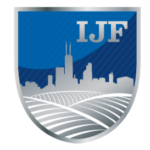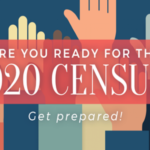Meet Marina LoCasto – Our New Assistant Director!
We’ve got exciting things coming down the pipes at Illinois Campus Compact, starting with our new Assistant Director, Marina LoCasto! She’ll soon become a familiar face for all of our member campuses as she takes hold of our VISTA program. Before you see her on your campus, learn more about her background and what drives her towards civic leadership.
1. Can you tell us a little bit about your background?
I am originally from Chicago and grew up in the Oak Park area. My family moved to Italy when I was in middle school so I had a rather unusual upbringing, but we eventually returned to Chicago. I went to the University of Dayton (OH) for both my undergraduate and graduate studies where I received a B.A. in Criminal Justice & Languages and a Master’s in Public Administration with a concentration in Nonprofit & Community Leadership. My professional experience has been split between working in higher education and nonprofit management, primarily working with student programming and urban youth.
2. Can you tell us how your experience at University of Dayton altered your view on how Higher Education should function as a civic leader?
I was fortunate enough to not only study at UD but to work there as well. I first interned then later became a graduate assistant in the Fitz Center for Leadership in Community, working with the Dayton Civic Scholars program for several years. This co-curricular program combined academic courses focused on urban issues and community building with a community-based internship, group capstone project, and a hefty service-hour requirement. As an alumni of the program, I can say these sorts of experiences changed my perspective on what it meant to be a civic leader and geared me towards a career in public service. The university itself is intrinsically tied to the city of Dayton and takes pride in getting students involved in the surrounding community in many different ways. Being at UD taught me the importance of place-based institutions and how universities and communities can mutually benefit from one another’s resources, while making people more active in civic life and inspiring students to choose a career path that will advance the public interest.
3. Can you tell us about your past experiences working with community partners and how that will help you bridge the gap between higher education and community?
When I was in Dayton I worked at an after-school program for disengaged adolescents that had a staff total of 3 people at the time, and functioned purely on private donations and small foundation grants. At my last job, where I was working for a large social service agency, we had several hundred employees and dozens of different government funding sources. Every community organization or NPO, or whatever you want to call it, is very different in terms of organizational structure, funding streams, and administration. This is important to remember whenever attempting to form a new partnership, because it will affect how relationships are formed and sustained. The scope and intensity of each relationship is dictated by what each party believes the other one can bring to the table and how they can leverage each other’s goals. This is no different in higher education. Though many colleges and universities tend to have more resources than most community organizations, they still need those community organizations in order to fulfill their goal of educating their students and providing real-world experiences from which those students can learn. Institutions of higher education also have an obligation towards their community to provide opportunities and resources to its community partners. Understanding what each party has to offer and how they can contribute to long-term goals is key in developing meaningful community partnerships.
4. What are some of your goals for ILCC?
Right now I am focusing on trying to learn as much as I can about Campus Compact as an organization and the AmeriCorps VISTA program which I am tasked with administering. I would like to take this next year to really organize and develop ILCC’s VISTA program so that the VISTA’s get the most out of their experiences and can use them as a professional development tool. Long term, I would like to see what other kinds of projects or programs we can take on that fit the mission of the organization and can help us further our vision to collaborate with new and existing partners on different kinds of civic engagement efforts.
5. Can you tell us a few random factoids about yourself?
Something random about me is that I have been figure skating since I was a kid and have been in more than a dozen ice shows and I’m still going. My other main passion is food, as I spent most of my childhood in my dad’s restaurants and love to cook and eat good food. I am also a lover of the outdoors, yoga, live music, tattoos, and re-watching the same 10 TV shows several years after they have gone off the air.
Contact Marina by email at mlocasto {at} compact(.)org
- Blog , Blog Posts , News
 News
News 


